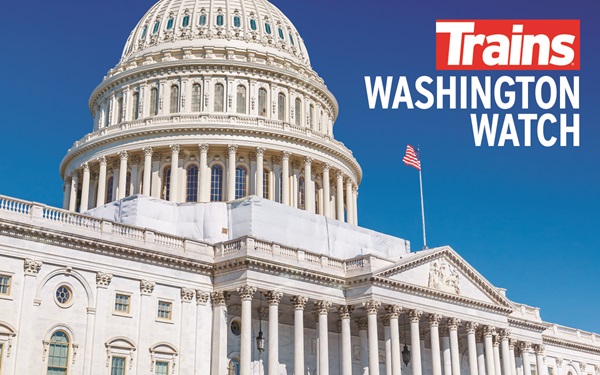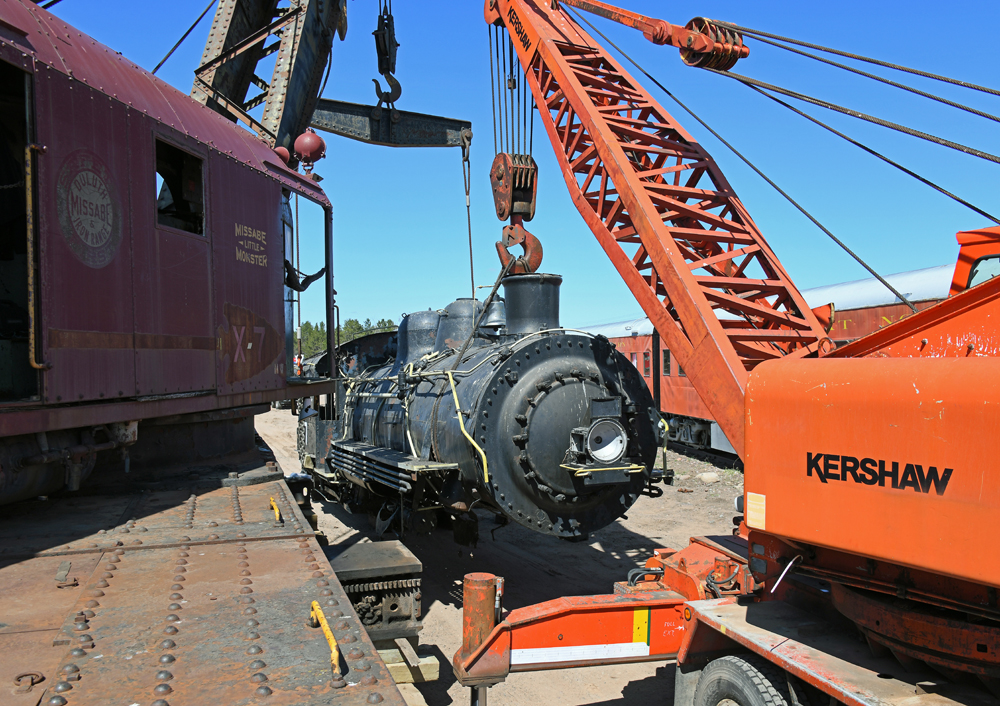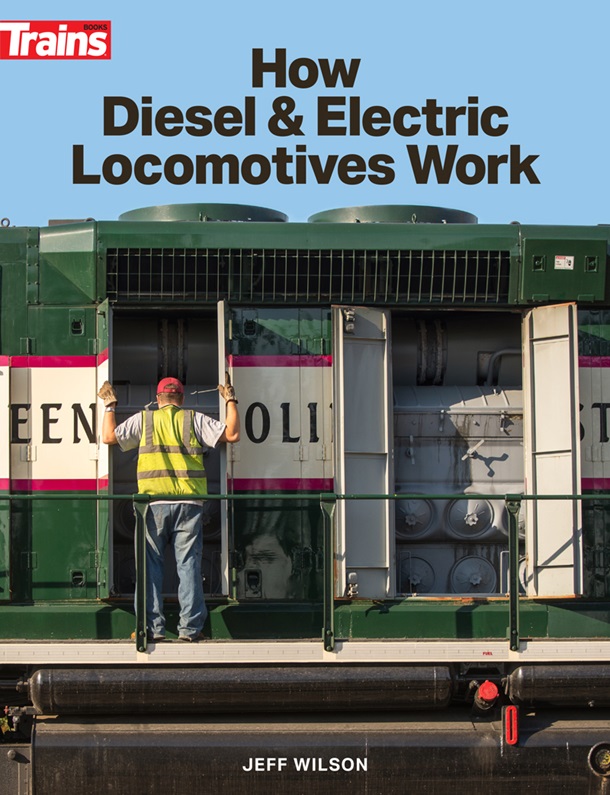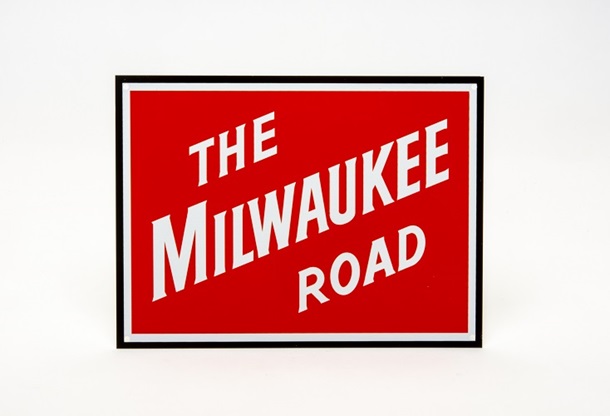 WASHINGTON — The U.S. Senate has passed legislation this afternoon (Thursday, Dec. 1) imposing a settlement in the labor dispute between railroads and unions, foreclosing the possibility of a national rail strike as soon as Dec. 9.
WASHINGTON — The U.S. Senate has passed legislation this afternoon (Thursday, Dec. 1) imposing a settlement in the labor dispute between railroads and unions, foreclosing the possibility of a national rail strike as soon as Dec. 9.
President Joe Biden said he will sign the bill into law “as soon as Congress sends it to my desk.”
The measure passed by an 80-15 margin. It will not include the addition of seven days of paid sick leave for rail workers, which had been approved by the House [see “House passes resolutions …,” Trains News Wire, Nov. 30, 2022] but was turned down by the Senate.
“I have long been a supporter of paid sick leave for workers in all industries – not just the rail industry – and my fight for that critical benefit continues,” Biden said in a statement.
CNN reports the Senate action came after Democrats and Republicans reached a deal on details of how to handle proposed amendments to the resolution passed Wednesday by the House. That resolution imposed the terms of a tentative agreement between railroads and unions reached on Sept. 15, based on the findings of the Presidential Emergency Board convened this summer.
Ultimately, NBC News reports, the Senate agreed to vote on a series of three motions, all requiring 60 votes for approval:
— In the first, senators first turned down an amendment offered by Sen. Dan Sullivan (R-Alaska) that would have extended the cooling off period for negotiations by an additional 60 days beyond the current Dec. 8 deadline. Only 26 senators voted for that proposal, with 69 opposed.
— In the second, a majority favored the proposed addition of seven days of paid sick leave, but its 52-43 margin of support fell short of the 60 votes needed.
— Finally, they voted to impose the terms of the tentative agreement, which include a 24% pay increase over the five-year life of the contract, as well as $5,000 in bonuses.
Association of American Railroads CEO Ian Jefferies said the Senate acted “with leadership and urgency” with its actions.
Jefferies said in his statement that “none of the parties achieved everything they advocated for. The product of these agreements is a compromise by nature, but the result is one of substantial gains for rail employees. More broadly, all rail stakeholders and the economy writ large now have certainty about the path forward. … The gains in this agreement are significant, including historic wage increases, best-in-class healthcare, and meaningful progress in creating more predictable, scheduled work shifts. Without a doubt, there is more to be done to further address our employees’ work-life balance concerns, but it is clear this agreement maintains rail’s place among the best jobs in our nation.”
Business organizations also praised the congressional action. Suzanne Clark, CEO of the U.S. Chamber of Commerce, said in a statement that “American workers, businesses and consumers will benefit from this outcome as it provides generous benefits for rail workers and certainty that rail service will not be interrupted. We must remember that our economy depends on the hard work of rail workers and the railroads, and averting a strike is a win for our country.”
Chris Jahn, CEO of the American Chemistry Council, welcomed an outcome that he said “will prevent a major disruption of chemicals that are critical to everyday life,” but tempered his enthusiasm with a call for regulatory reforms to address rail service issues.
“This legislation puts one major problem to rest, but we’re certainly not out of the woods yet when it comes to fixing the breakdown of the freight rail network,” he continued. “To get to the heart of the matter and prevent the next crisis, Congress and the Surface Transportation Board must address the root causes of rail service problems that continue to put the brakes on U.S. manufacturing.”
Unions, meanwhile, were highly critical of the decision to impose the settlement without the sick-time provision.
“Shame on the 43 elected leaders who abandoned the working class,” the Transportation Trades Divison of the AFL-CIO said on its Twitter feed. “We will not forget it. … We will continue to pursue rail worker sick leave through every avenue available to us. And we will win.”
The SMART-TD union, whose operating craft members voted down the agreement the congressional action will impose, also focused on the 43 senators who voted against paid sick leave, saying in a statement that they “voted to prioritize the corporate greed of rail carriers and CEOs over the needs and quality-of-life improvements that our members so desperately deserve. …. The ask for sick leave was not out of preference, but rather out of necessity. No American worker should ever have to face the decision of going to work sick, fatigued, or mentally unwell versus getting disciplined or being fired by their employer, yet that is exactly what is happening every single day on this nation’s largest freight railroads.”
Tony Cardwell, president of the Brotherhood of Maintenance of Way Employes Division, whose members also voted down the tentative agreement, said in an open letter to members of Congress that those who voted against a provision “that raises the standard of living for hard-working Americans … are deemed, in my eyes, unworthy of holding office.
Cardwell said the government “inserted itself into the dispute between the railroads and the railroad workers under the premise that it must protect the American economy” but argued that decision came with a “moral responsibility to also protect the interests of the citizens that make this nation’s economy work — American railroaders. That is, Members of Congress were obligated to vote to pass paid sick leave for all railroad workers. The representatives were not obligated to protect the exceeding profits of the corporations. A number of Members of Congress chose — yet again — to trample on the workers in their rush to cozy up to the corporations.”
— Updated at 3:45 p.m. CST with AAR statement; updated at 3:54 p.m. CST with TTD reaction on Twitter. Revised and updated with Biden statement at 4:01 p.m. CST. Updated with SMART-TD statement at 6:05 p.m. CST. Updated with letter from BMWED President Tony Cardwell at 6:20 p.m. Updated with comments from CEOs of U.S. Chamber of Commerce and American Chemistry Council at 6:30 p.m.














Shame on the unions for selling out their members by accepting the tentative agreement that didn’t address the working conditions and quality of life issues that their members have been fighting for. All to not make the democratic party look bad before the midterm elections. Now the members need to pull their union dues until these self serving union “leaders” are out of a job!
can’t do that it’s a closed shop position
Once again, counter-productive politics (but i repeat myself) trumps a free market. This would have worked itself out. Yes, a rail strike would be bad for the economy (which is why Biden jumped in and then dumped it on Congress), but it would also be bad for the RR’s, which is/ was the motivation for mgmt to come to come to an agreement with labor. Instead politicians have screwed it up, and the result will be an even longer period before mgmt and labor reach an agreement.
Duplicitous Democrats… making sick time a separate bill, they knew fully that it wouldn’t pass the senate. Cynical virtue signaling.
Both parties care nothing about the abused railroad workers.
Then we read about “trip optimizer”, which us nothing but a way to dumb down the workforce even more. The automation is clearly intended to allow class 1s to hire engineers away from McDonald’s and Amazon minimum wage pool…
The first railroad that tells the Almighty Operating Ratio to go to Hell and implements Precision Scheduled Work Shifts will win. Why can’t they do 12 hour shifts, 4-on, 3-off/3-on, 4-off, max two days away from base? Oh, right, that would increase labor costs, and you can’t have that [sarcasm].
True, RRs have to make the job more attractive or they will have no one to run the trains or do MOW.
Service will meltdown, the RR CEO’s will initially blame the bad winter weather, then STB Chairmen Oberman will ask them how many winters their respective RR’s have been operating and why this winter is so much worse, then Congress will schedule hearings and proposed re-regulation.
Hope this would happen. But sometimes I feel STB is overly cautious to test its powers to regulate when it comes to poor service. Oberman I think is doing his best to jawbone the RR and get them to show evidence of real improvement or lack there of so that STB has a better leg to stand on when it imposes conditions. But this takes a long time and possibly to much before the workers heading for the doors turns from a wave to a Tsumammi
HELLO, Railroad Companies. Here’s my Christmas Message for you guys.
(1) Re-regulation
(2) No one wants to work for you.
Definitely agree
I’ve heard that when the workers get their back pay, many will bail.
Many who have 30 years but haven’t reached age 60 are bailing.
Eric’s right. How will the railroads explain the mass exodus and the fact that no one wants to work for them anymore.
Let the railroader mass exodus begin……. Let’s see how the railroads will explain it away when it happens…….
The unions have forever supported the Democrat-media party.
No doubt, they’ll continue.
Life’s tough, it’s tougher when you’re stupid.
And the 48 that voted against extended sick days came from which party? and the 52 for was overwhelmingly from which party?
Unfortunately you do not get what you always want, but at least Joe Biden had his administration intervene to give Labor some of what it wanted
Do agree with next commenter that folks in a tight labor market will leave the industry and be less attracted to it.
Here’s the irony of the “sick pay provision” being voted down. The railroad employees need sick time off…no question about that. The average congress person works on average only 165 days per year, but gets paid for the entire year. So, what is their problem with granting 7 sick days “time off” from work?
And the other party has done something to represent railway workers?